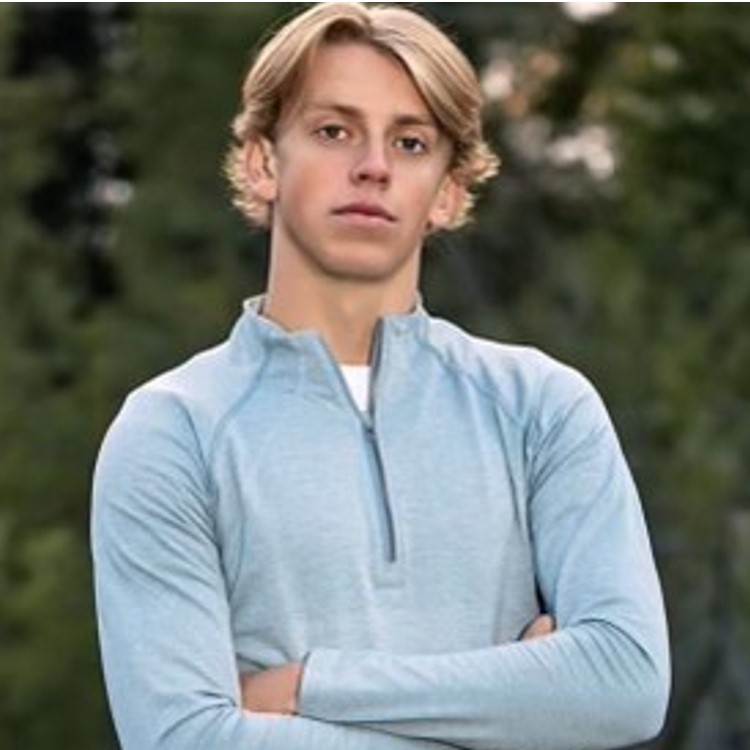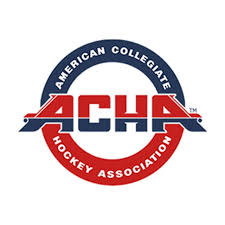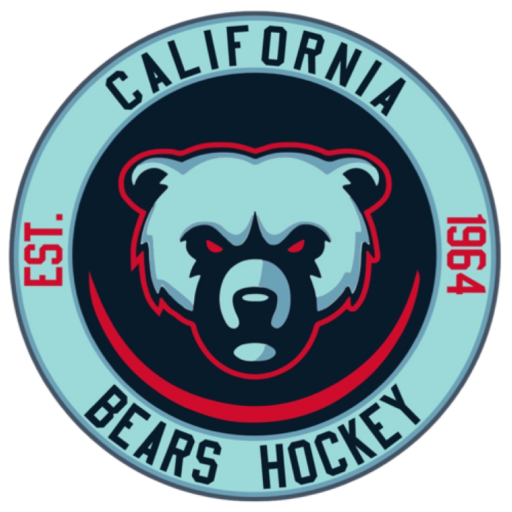Minnesota Madness!
- By John Harrington
Because Jacob Gunderson was born in snowy Minnesota, he naturally jumped on the ice at the early age of three. However, unlike the locals, he didn't take to the sport. He didn't enjoy it at all. Ironically when his parents were transferred to sunny California for work it was only then that Jacob fell in love with the game. And it was love at second sight. As all roads lead to Pickwick, he eventually ended up with the California Bears and played for Coach Torsson for two Bantam AA seasons. Those familiar with the alumni origin stories in the Bear Mail will tell you, it is at this point where the young athlete will start to evaluate prep schools back east. A few of his teammates packed their bags a left home. But that didn't happen for Jacob. Instead, his parents moved back to Minnesota and Jacob needed to find a new high school, and a new team.
After he arrived in Minnesota in the summer before his sophomore year, Jacob wasn't quite sure what high school he would be attending. For a while he attended drop-in clinics, got to know a few players from Rosemont High, and it appeared that he was on a path to be playing on their high school team. He became close with the players as new friendships started to form. But a few days before school started, the Gundersons decided Lakeville South High would make more sense, and just like that he was trying out for Rosemont’s rival team across town. Jacob soon realized he had a slight advantage at the rink, “I was able to play two years of Bantam in California for Coach Torsson, and then once I moved to Minnesota it was my freshman year in high school and was able to play a third year of Bantams. Honestly this was awesome because we had kids that were freshly coming out of Peewee that were good enough to make the AA, there's no AAA in Minnesota, so they're not really used to hitting. Since I've been hitting for two years in California, I had the upper hand because I was also older. That definitely helped me progress as a player and then going into high school in Minnesota it was so much easier.”
At the beginning of this journey, Jacob felt a little bit like an outsider. He was one of the three new kids from California and word spread quickly at Lakeville South. Right away he felt the intense passion the town had for the team and the suspicions they had of any outsiders taking up spots on the roster – spots that “belonged” to locals who had been in the community for generations. But it wasn’t long before he started to prove himself in Bantam, and in the summer before his sophomore year, Jacob’s long-awaited growth spurt finally decided to show up to the party. Better late than never. He blew up from 5’7 & 130 lbs. to an imposing 6’1 & 160 lbs. For a few frustrating years Jacob watched his teammates and opponents pass him by, but he committed himself to keep “working hard and staying patient.” He knew his day would come. And here it was. He finally got the attention of the varsity coach. After building a solid Bantam reputation followed by an auspicious try-out, he earned a spot on the team. The suspicions slowly dissipated as Jacob became an important part of the team and proved he could play the game as a reliable and dependable defenseman. To all you late-bloomers out there, Jacob stuck with it. And it paid off. The Lakeville South team was on a mission and Jacob was in the mix of it all, the outsider kid from California.
“I played two games of JV just to get used to the speed and the body. My first varsity game was against Edina which is a well-known city in Minnesota. They're known for state championships and had five out of six defensemen committed to a Big Ten school. Edina ended up winning the State Championship that year which was kind of nice for my very first game in varsity to play against the top dog.”
Speaking with Jacob while he described playing hockey in Minnesota gave me goosebumps as he recounted the passion that he faced daily among students, parents, rival fans and opponents. “Some kids in Minnesota don't get that opportunity to play in the state tournament, which is held in the Excel Arena where the Wild play, and I was lucky enough to be on a good team and all three years and we played there. We had 18,000 people (about the seating capacity of Madison Square Garden) for a semi game. You have trumpets blaring. You got a section up in the very top of college students just screaming. In hockey every kid loves to celebrate after they score -- having half of your school on the glass banging and cheering, with 15 rows deep of a student section. It's a blast! You skate and celly all the way through your student section, or away games you go and celebrate with the opposing student's section. It's the best. They have people on Twitter talking about the game. And random fans talking about high schools and their teams. I still watch my high school play to this day. I still cheer them on. Hockey is such a big thing back there.”
Jacob, nostalgic, looked back on those years where they made the semifinals twice (losing one in triple OT) and the finals during the Covid lockdown, “The funny thing is we lost to the same team in my sophomore, junior and senior year, Eden Prairie High, and they were just full of NHL draft picks at this time.” And what a way it was for Jacob to end his high school hockey career to play in the final of the Minnesota states championships. You don’t get more Disney than that.
It was about this time that the “ticking clock” eventually revealed itself. Jacob realized the moment that 99% of young players have. “I was going into my senior year and I hurt my shoulder. I had a separated AC joint in the back, and I'm going to be out the first few games, and I asked myself “Is this really something I want to do?” This is about time you start applying for schools, or you really start laying the law down to become a better player. This is kind of your last chance, so I went on and graduated and then went and played for Minnesota Magicians in the NAHL. Then I got hurt again. I decided I'm not going to be doing this. Juniors is a grind. You're sitting on a bus for 16 hours travelling down to Springfield. And I'm not doing anything. I'm sitting on the bench or sitting up in the crowd taking stats while all my buddies are at college sending me videos of them hanging out on the weekends. And I missed that so much. I knew at that time that hockey wasn't done but it definitely needed to be brought somewhere else. I love everything about Minnesota like hockey and summer, but not the winters. I needed to go somewhere that's going to bring my energy up, a little positivity, to give me little momentum to go get up and go to class. I need warm weather. So, I decided on ASU. I knew that they had club hockey down in Arizona. ACHA (club hockey) wasn't that big when I first came down but now so many kids come and do showcases to try and make teams. We have one NCAA D1 team and three club teams: D1, D2 and D3. So it’s crazy to think about it, you’re at a school that has 70,000 students and there's 120 kids trying out for three club teams. And you got to split the teams evenly. I was lucky enough to make the D1 club team my freshman year, because I was the youngest kid at 20, coming up through a year of Juniors. It was kind of nice not coming in as an 18-year-old, I had some more maturity on me than most of the freshmen that would come in right now. So, I started on D1, it's really just like Juniors where they have six or seven scratches every game. I played my first two games, and I played pretty good for a freshman. But after that I just didn't play for two or three games. I heard the D2 team was going to Minneapolis to play the University of Saint Thomas, University of Minnesota and Minnesota State which are teams my best friends play on. I thought, “When am I ever going to get a chance to play against my buddies, especially in college?” We’re not playing (NCAA) D1 or any of that stuff. We're playing club hockey, and I needed to take that opportunity. So, I moved to the D2 team, went to Minneapolis, and played against my buddies. We lost 8-3 and it was still a blast.”
One the social and academic side Jacob has found his stride, largely due to the foundation of the hockey brotherhood, “The big thing at ASU is frats and sororities and stuff like that. Most of the guys on my team are all so close, and right now we have two houses with five guys, all hockey guys, next door to each other. I literally came here to play hockey, didn't know a single soul, and now the hockey guys are my best friends.
Jacob started business school at ASU but realized it wasn’t for him. He needed to change course. He reminisced it was just like hockey, knowing that the real world was coming quickly, and he had better focus up and find something that he really wanted to do and was passionate about. He now finds himself studying journalism and wants to combine his love of hockey with storytelling and stay close to the sport that gave him so much. Speaking with Jacob, I could feel that passion as he relayed the story of his hockey journey. And it’s clear he is on the right path. And there is no question that the highs and lows of his hockey adventure have taught him the skills to be able to deal with whatever life throws at him. With a solid foundation and a mature perspective, Jacob has offered to give advice to any young players out there – or if you just want to hear his captivating Minnesota dreams, you can find him at bearsdman23@gmail.com or 661-644-6581. (A special shout-out to Jacob for keeping his “Bears” email address. He is indeed a Bear for life!)
Why hockey? (TEN WORDS OR LESS)
Hockey blends speed, skill, teamwork, tradition, excitement, passion, resilience, and community.
When and where did you start playing? Who inspired you to play?
I put on my first skates at the age of three while living in Minnesota. Although I didn't enjoy it at first, everything changed when my family moved to California and during winter break when I was 8, I visited an ice rink, and it was there that I fell in love with the sport.
Years at the Bears? Best Bear Memory?
I played for three years under Peter Torsson at the Bears. Choosing a single best memory is difficult because I have so many great ones. Playing in Beijing, winning CAHA, competing in Nationals in Florida, and billeting/hosting Russian players for our home tournament are all amazing memories that I cherish.
Nickname among your hockey friends?
Gundy
Which coach/mentor/role model stays with you, to this day, in the back of your mind?
Coach Torsson is a mentor who stays with me to this day. His dedication to player development and his innovative approach to coaching have had a lasting impact on my game. Every year after tryouts, Peter would give his players a playbook to learn. He also asked us to read a book called "MindGym," which I have referenced many times in my college courses.
Coach Torsson teaches his team to break through their personal limits and external challenges with perseverance and passion. His influence elevated my game by fostering a culture of continuous learning and resilience. Players under his guidance not only became better athletes but also more strategic thinkers, understanding that every setback is an opportunity for growth.
How did you balance studying, commuting, practice and lots of missed school days?
Balancing travel hockey and school needs good planning. Study during travel, talk to teachers about your schedule, and keep your stuff organized. Get enough sleep, eat healthy, and use any study resources you have.
Which exercise gives you the biggest advantage on the ice?
One of the best exercises that gives me an edge on the ice is dryland training with Coach Peter. We push tire tractors and work with weighted ropes. This type of training builds serious strength and endurance, translating to more powerful strides and better overall performance during games.
Where are you playing now and how did you get there?
I'm currently playing Division 2 hockey at Arizona State University. After high school, I played a bit of junior hockey and then decided to attend college. Knowing ASU had strong club hockey teams at the D1, D2, and D3 levels, I aimed for their program. I initially made the D1 team but had some conflicts with my course schedule. To better balance hockey and academics, I decided to play for the D2 team instead. It's been a great fit, allowing me to excel both on the ice and in the classroom.
Where do you see yourself in ten years?
In ten years, I see myself working in sports journalism, combining my love for hockey and storytelling. With my journalism degree, I want to cover big sports events, highlighting the athletes' stories. I envision working for a top sports network or publication, traveling the world to report on games and inspire people with engaging narratives. My experiences playing hockey with the Bears, Minnesota hockey, and at ASU will shape my career, giving me a unique view in the sports journalism field.
Who would win in a hockey fight? Connor Bedard or Connor McDavid?
If I had to guess, Connor McDavid might have the upper hand because he's bigger and stronger, but Bedard's quickness and agility would make it a close fight. In the end, both players would probably prefer to show their skills on the ice rather than through fighting.
Best celebrity sighting at Pickwick Ice in Burbank? If not at Pickwick, any other rink in L.A.?
The coolest celebrity sighting at Pickwick Ice in Burbank was David Boreanaz from "Bones." It was great seeing him on the ice, especially since his son played there too.
The longest drive you/parents made for a hockey game?
The longest drive I ever did for hockey was to Phoenix for a tournament while playing for the Bears.
Favorite hockey slang that confuses your civilian friends?
One of my favorite hockey slang terms that really confuses my non-hockey friends is "snipe."
You have a Bears Time Machine, you fly back to your first day of Mites, what advice would you give yourself?
If I could travel back to my first day of PeeWee with the Bears, I'd tell myself to embrace every moment on the ice. Enjoy the game, work hard, and don't be afraid to make mistakes -- they're part of the learning process. Stay curious, ask lots of questions, and always remember that having fun and building friendships are just as important as winning games.
And don't forget to thank your parents for all those long drives and early mornings—they're your biggest supporters. The parents on our Bears team were the best; they became like family to me and my own family since we weren't from California.
What is the funniest misconception you’ve experienced when trying to explain to hockey players outside of California…that yes, there is indeed hockey in California?
The funniest thing is when people from outside California can’t believe we play hockey here. They think it's all just beaches and sunshine. It’s always funny to explain that, yes, we have ice rinks and a great hockey scene in California. Many are shocked at how talented hockey players from California are.
Look at your phone, what is the very last song you listened to? Be honest! No reason or apology necessary (We all have that one song).
Red Hot Chili Peppers – Californication
Any real-world experience, which made you think “Yes, that’s just like in hockey.” What did you learn from your hockey life, which has helped you in the real world?
One real-world experience that reminded me of hockey is teamwork in group projects at college. Just like on the ice, every team member has a role, and success comes from working together and supporting each other. From hockey, I've learned the importance of perseverance and resilience—skills that are invaluable in school, jobs, and friendships. Hockey taught me to stay focused, work hard, and keep pushing even when things get tough. It also showed me the value of communication and being there for your teammates, which translates well into building strong relationships in all areas of life.
Additionally, during the summers, I assist my high school in running their summer camps. This experience has allowed me to give back, share what I've learned, and help younger players develop their skills and teamwork, further reinforcing the lessons hockey has taught me. |



